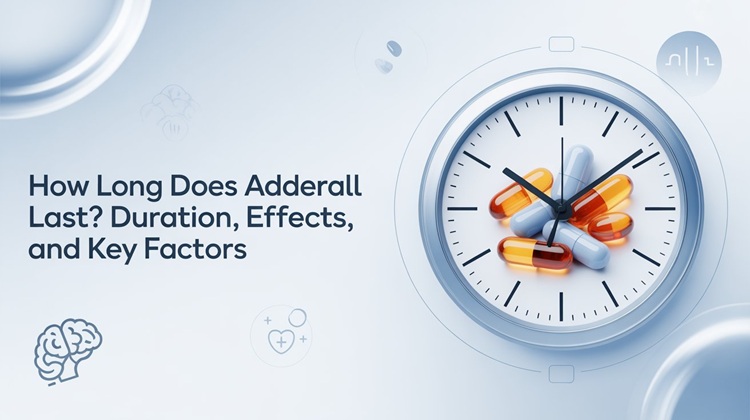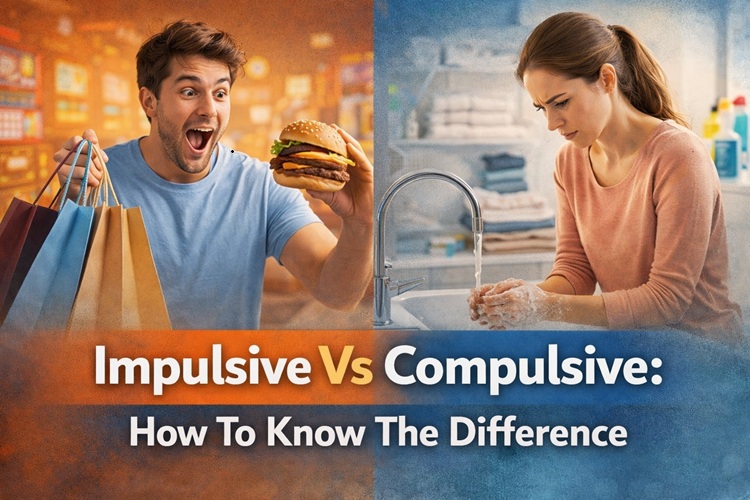The understanding of mental health treatments requires knowledge about available care options. People seeking mental health care have two main options to consider: inpatient and outpatient programs, which provide benefits that match particular treatment needs. The following text explains distinctions while offering guidance to identify the appropriate care between inpatient and outpatient programs.
What is Inpatient Care?
The structured setting of an inpatient program exists as a 24/7 residential facility which people call inpatient care. People with serious mental health or substance use disorders need this level of intensive care and supervision and medical care before an inpatient facility makes provisions for them.
Mental health patients receive services in scheduled healthcare facilities that create a guarded atmosphere where they can dedicate themselves to their rehabilitation beyond daily environmental interruptions. The programs provide multiple therapeutic services, which include personal treatment sessions, support group work, medication management and programs that teach essential skills.
Individuals with acute psychiatric episodes or those who need detoxification through drug rehab inpatient programs along with those displaying self-harm behaviors, find appropriate care in inpatient mental health facilities.

What is Outpatient Care?
Patients can stay at home under outpatient care programs, including intensive outpatient treatment, which requires attendance at regularly scheduled medical appointments. Treatment sessions with therapy and counseling support, together with educational programs, are scheduled multiple times weekly.
The intensive outpatient treatment programs follow a strict structure that provides more freedom than residential treatment programs. The treatment and services supply matches what traditional settings offer as patients continue fulfilling their responsibilities in work or educational or home environments. The treatment setting of intensive outpatient programs provides perfect care for patients requiring substantial support above basic living supervision.

100% Confidential Support is Available 24/7
No matter what you’re going through, you’re not alone. Our dedicated team is here to provide a safe, judgment-free space where you can talk openly and honestly. Whether you need emotional support, resources, or just someone to listen.
We’re here for you—completely confidential and always respectful of your privacy. Call us today!
What’s the Difference Between Inpatient and Outpatient Mental Health Care?
The primary difference between inpatient vs outpatient mental health care lies in the setting and level of supervision:
- Treatment in inpatient mental health programs mandates patients to stay within the facility grounds during their entire therapy period. The treatment environment gives both round-the-clock monitoring and quick medical assistance.
- Through outpatient programs, patients can receive their treatment from a facility while staying at their residence.
People who experience dangerous symptoms or health risks along with medical conditions should enter inpatient treatment facilities. People with milder or moderate symptoms, along with some degree of independence, normally receive treatment as outpatients.
Each needs proper healthcare treatment matching their present state which becomes possible when people understand the essential differences between inpatient and outpatient mental health services.
Contact Palm Coast Treatment Solutions
Battling with Drug and Alcohol Addition? Remember, you are not alone and we are here to help you!
Are There Different Doctors and Providers for Inpatient and Outpatient Care?
Both inpatient and outpatient programs employ a range of mental health professionals, but the team composition may differ slightly:
- The common structure of inpatient treatment implements an all-day multidisciplinary team that includes psychiatrists with therapists and nurses and case managers for continuous availability.
- Treatment centers that offer outpatient programs staff therapists and psychiatrists together with counselors to provide set appointment-based services without continuous emergency coverage.
The main purpose in both locations remains the same: delivering customized treatment strategies which address individual mental health, together with substance use requirements. The level of support intensity together with its immediate availability changes between these settings.
When Does Someone Need Inpatient Mental Health Care?
The patient needs to enroll in an inpatient program if they encounter these conditions:
- Severe symptoms of mental illness, such as major depression, psychosis, or suicidal thoughts.
- The situation requires immediate stabilization for a psychiatric crisis.
- There exists a requirement for professional medical detox services which can be found in drug rehab inpatient programs.
- Individuals who show substantial restrictions in daily activities must seek residential treatment because their household environment becomes dangerous.
- A history of relapse despite previous outpatient efforts.
- Intensive medical supervision along with extensive behavioral treatment services that patient-based health programs deliver effectively resolve severe behavioral health issues. Inpatient care facilitates basic recovery skills that prepare people to continue their treatment journey with lower levels of treatment intensity.
Overcome Addiction with Palm Coast Treatment Solutions.
Book an appointment.
When Does Someone Need Outpatient Mental Health Care?
The intensive outpatient treatment approach may offer the most suitable care option if patients exhibit these conditions.
- They have access to a consistently supportive home environment.
- The person shows symptoms of mental health which range from mild to moderate severity.
- Following inpatient rehab completion, this person requires transitional care, which is known as step-down services.
- The treatment program requires adaptability for students and employees who need to balance career duties with household responsibilities and academic requirements.
- The patient demonstrates high eagerness to take part in treatment sessions along with recovery activities.
The comprehensive structure of intensive outpatient programs combines intensive assistance with strategies to help patients become self-reliant while teaching them to apply their skills in their regular routines. People typically succeed in upholding their treatment achievements through outpatient care following their first inpatient admission.
Choosing the Right Kind of Care
Treatment options between inpatient and outpatient services depend on symptom severity as well as patient risks and personal goal achievement and their home support environment.
Here are some considerations:
- A severe condition’s symptoms usually require admission to hospital treatment units.
- Security problems requiring inpatient care exist when people represent either themselves or others at immediate risk.
- A devoted support network improves the effectiveness of outpatient care.
- The success of outpatient treatment together with existing health records should guide healthcare professionals in determining whether residential treatment would provide the best support.
- People who participate in outpatient care can continue attending school or work because of its flexible nature.

The staff at Palm Coast Treatment Solutions recognizes individuality when it comes to mental health recovery paths. Our staff operates different treatment models such as inpatient behavioral health programs, drug rehab inpatient programs and intensive outpatient treatment programs that address individual requirements.
Contact us at Palm Coast Treatment Solutions (386) 284-4151 to receive assistance in determining between inpatient or outpatient environments when seeking mental health or substance use treatment.






















